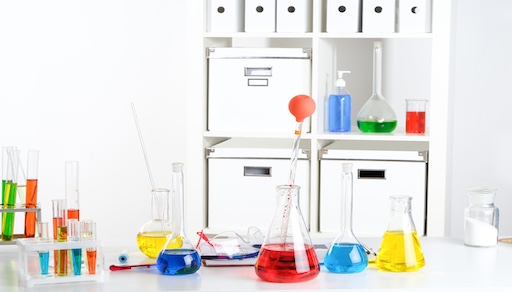Whether opening a new laboratory or stocking an existing one, having the correct supplies is essential for speedy, safe, and accurate work. Below is a list of the top 7 lab supplies that every laboratory should have:
1. Personal Protective Equipment (PPE)
Safety is the top priority in any laboratory setting. Personal protective equipment (PPE) is your first defence against hazards such as chemical spills, flying debris, and biological contamination. Essential PPE items include:
Lab Coats: Protect clothing and skin from harmful chemicals and biohazards.
Gloves: Provide protection against chemical exposure, biological materials, and cross-contamination.
Safety Goggles or Face Shields: Safeguard your eyes from chemical splashes, flying particles, and other hazards.
Respirators or Masks: Ensure proper air filtration when working with toxic fumes or infectious materials.
Make sure that your lab personnel are trained in the proper use of PPE and regularly inspect equipment for wear and tear to maintain a safe environment.
2. Laboratory Glassware
Glassware is indispensable in every laboratory. It is used for a variety of purposes, including mixing, heating, and measuring substances. Key laboratory glassware types:
Beakers: Ideal for mixing, stirring, and heating liquids.
Flasks (e.g., Erlenmeyer or Volumetric): Used for mixing and measuring liquids with precise volume requirements.
Pipettes, Burettes, and Graduated Cylinders: Allow for precise measurement of liquids, from microliters to litres.
Petri Dishes: Commonly used for culturing microbes in biological labs.
Quality glassware ensures accurate measurements and safe handling of chemicals. Look for borosilicate glass for durability and resistance to thermal shock.
3. Chemical Reagents
Chemical reagents are crucial to laboratory investigations because they enable researchers to conduct tests, analyses, and reactions. A well-stocked lab should have a variety of substances, including:
Acids and Bases: For titrations, pH adjustments, and neutralisation reactions.
Solvents: For dissolving or diluting substances.
Indicators: To signal changes in pH or other properties during reactions.
Specialty Reagents: For more specific experiments, such as biological assays or spectrophotometric analysis.
Maintaining an updated inventory of chemicals and ensuring proper storage conditions (temperature, humidity, and light exposure) are key to preserving their effectiveness and safety.
4. Measuring and Weighing Lab Tools
Accurate measurement is key to successful experiments. Whether dealing with liquids, solids, or gases, having reliable lab tools for measuring and weighing is crucial. These include:
Balances: These are used to measure the mass of substances with high accuracy.
Thermometers and Temperature Probes: To monitor and control temperature-sensitive reactions or processes.
pH Meters: Essential for testing the acidity or alkalinity of solutions.
Reliable measurement tools are essential for reproducibility and accuracy in research and experiments.
5. Centrifuges
Centrifuges use density to separate materials in a sample. Because they spin samples rapidly, lighter materials remain on top and denser materials sink to the bottom. These tools are employed for a variety of purposes in clinical diagnostics, molecular biology, and biochemistry.
Blood separation: Separating plasma, red blood cells, and other components.
DNA/RNA extraction: Isolating nucleic acids from cells or tissues.
Protein purification: Separating proteins based on their size or density.
When choosing a centrifuge, consider factors such as capacity (size of samples), speed (RPM or RCF), and whether a refrigerated model is necessary to prevent sample degradation.
6. Microscopes
For labs focused on biological, chemical, or material science research, microscopes are essential tools for examining small structures that are not visible to the naked eye. Depending on the scope of your work, you may need:
Compound Microscopes: Ideal for examining cells, tissues, and microorganisms at high magnification.
Stereo Microscopes: These are useful for lower magnification and provide a 3D view of specimens.
Electron Microscopes (EM): These are used for imaging at the nanometer scale and are crucial for advanced research in materials science and molecular biology.
Microscopes allow for detailed analysis of cellular structures, material properties, and chemical interactions, making them indispensable for any lab involved in advanced research.
7. Storage Containers and Cabinets
Efficient storage is key to maintaining an organised and safe laboratory environment. Storage containers and cabinets are necessary to:
Safe chemical storage: Follow specific requirements for flammables, acids, and toxic substances.
Equipment and reagent organisation: Ensure easy access and arrangement to enhance workflows.
Sample integrity: Protect biological samples and chemicals from contamination and temperature changes.
Proper labelling and categorisation are essential to avoid mishandling and ensure that all items are stored in a manner that minimises risk.
A well-equipped laboratory is crucial for successful research and experiments. The right tools, from safety gear to microscopes, help your lab run smoothly and safely. Investing in quality lab supplies improves the accuracy of your experiments, boosts productivity, and keeps everyone safe.
Laboratory Supplies at Techmate
At Techmate, we offer top-quality lab supplies for your specific research needs. Whether you are setting up a new lab or upgrading your current equipment, we have a wide range of tools to help your lab succeed. Get in touch with Techmate today to learn how we can support your laboratory and make your research more efficient and impactful.

